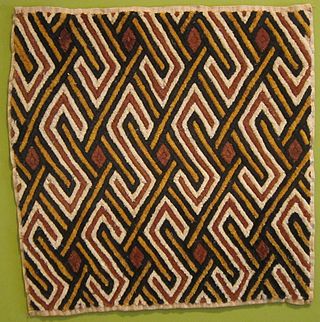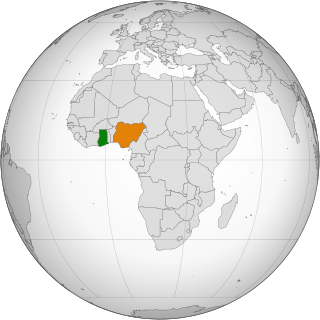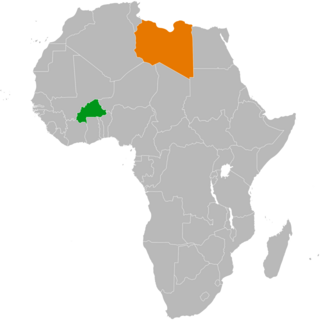History
Ethnic ties between the people of far northern Ghana (notably the Mossi) and Burkina, divided by artificial borders inherited from colonial rule, grew stronger as easy border crossings and free exchange of goods and services contributed to marked improvements in the material and the social welfare of peoples on both sides of the border. The Ghanaian Provisional National Defence Council, for example, established road, air, and telecommunications links between Ghana and Burkina. [1]
Ghana's warm relations with Burkina received a serious but temporary setback with the assassination of Sankara in October 1987. His successor, Blaise Campaore, was widely believed to have been responsible for the assassination. As a result, relations between Ghana and Burkina cooled. Rawlings and Campaore met briefly for the first time in early 1988 in Tamale, the capital of Ghana's Northern Region, to discuss Ghana-Burkina relations. [1]
The outbreak of civil war in Liberia in 1989 found the two countries on opposite sides of the conflict. Ghana, at great financial and human cost, immediately repatriated about 10,000 Ghanaians living in Liberia and, beginning in mid-1990, contributed a contingent to a multi-national peace-keeping force second in size only to one sent by Nigeria. From 1990 to 1993, Campaore's role in the Liberian conflict was at odds with an ECOWAS peace initiative spearheaded by Ghana and Nigeria, because Burkina was believed to be supplying arms to Charles Taylor's forces, long regarded as the main obstacle to peace. In 1994 relations between Burkina and Ghana showed signs of warming at a time when Campaore appeared to be reassessing his policies in Liberia and toward Ghana and Nigeria. [1]
In 2015, Ghana, Burkina Faso, and Togo signed a pact to increase relations between the three neighboring countries. The three nations agreed to ease movement between them to work together on issues of education, health, and agriculture. The agreement also calls for the discouraging of forced marriages within all three countries, as well as tackling petroleum smuggling operations and other cross-border criminal activities that have hurt the sister countries. [2]
As of 2016, Burkina Faso trades at a deficit with Ghana. The former exports goods valued at $58,978,640 to Ghana, while importing $161,428,465 worth of goods. [3]

Burkina Faso has good relations with the European Union, African and certain Asian countries. France, the former colonial power, in particular, continues to provide significant aid and supports Compaoré's developing role as a regional powerbroker.

Thomas Isidore Noël Sankara was a Burkinabè military officer, Marxist revolutionary and Pan-Africanist who served as President of Burkina Faso from his coup in 1983 to his assassination in 1987. He is viewed by supporters as a charismatic and iconic figure of the revolution, and a powerful advocate for Pan-Africanism and workers rights, while his critics condemn his human rights abuses and the authoritarian government he led.

Blaise Compaoré is a Burkinabé-Ivorian former politician who served as the second president of Burkina Faso from 1987 to 2014. He was a close associate of the first president, Thomas Sankara, during the 1980s and in October 1987 he led a coup d'état during which Sankara was killed. Subsequently, he introduced a policy of 'rectification', overturning the leftist and Third Worldist policies pursued by Sankara. He won elections in 1991, 1998, 2005, and 2010, in what were considered unfair circumstances. His attempt to amend the constitution to extend his 27-year term caused the 2014 Burkinabé uprising. On 31 October 2014, Compaoré resigned, whereupon he fled to the Ivory Coast. In April 2022, he was found guilty by a special military tribunal of complicity in Sankara’s murder. He is also the longest-serving president of Burkina Faso.

The Agacher Strip War or Christmas War was a war fought by Burkina Faso and Mali over a 160-kilometre-long (100 mi) strip of land along the border in northern Burkina Faso from 25 to 30 December 1985. The war ended in a ceasefire. The Agacher Strip had been subject to a border dispute between Mali and Burkina Faso since the 1960s. Following armed clashes in 1974, both countries agreed to mediation to resolve their differences. Progress on a solution stalled, and in 1983 Burkinabé President Thomas Sankara and Malian President Moussa Traoré decided to have the border dispute settled by the International Court of Justice and subsequently petitioned the body to resolve the issue.

The individual member states of the African Union (AU) coordinate foreign policy through this agency, in addition to conducting their own international relations on a state-by-state basis. The AU represents the interests of African peoples at large in intergovernmental organizations (IGO's); for instance, it is a permanent observer at the United Nations' General Assembly.

African textiles are textiles from various locations across the African continent. Across Africa, there are many distinctive styles, techniques, dyeing methods, and decorative and functional purposes. These textiles hold cultural significance and also have significance as historical documents of African design.

The Trans–West African Coastal Highway or TAH 7 is a transnational highway project to link 12 West African coastal nations, from Mauritania in the north-west of the region to Nigeria in the east, with feeder roads already existing to two landlocked countries, Mali and Burkina Faso.

The strains in Ghana–Togo relations stretch back to pre-independence days.

Ghana–Nigeria relations are the bilateral diplomatic relations between Ghana and Nigeria.
The Ghana Refugee Board was established under the Ghana Refugee Law 1992, and is charged with the management of activities relating to refugees in Ghana. It is under the control of the Ministry of the Interior.
The Ghana Immigration Service (GIS) is in charge of the removal and deportation of illegal immigrants in Ghana.

Bilateral relations exist between Australia and Senegal.

Burkina Faso–Libya relations refers to the current and historical relationship between Libya and Burkina Faso. Libya maintains an embassy in the Burkinabé capital of Ouagadougou, and Burkina Faso has an embassy in the Libyan capital of Tripoli.

Burkina Faso–North Korea relations refers to the current and historical relationship between the Democratic People's Republic of Korea (DPRK) and Burkina Faso. Neither country maintains an embassy in the other, although the DPRK formerly had an ambassador accredited in the Burkinabé capital Ouagadougou.

Burkina Faso–India relations refers to the international relations that exist between Burkina Faso and India. Burkina Faso maintains an embassy in New Delhi. India maintained an embassy in Ouagadougou from November 1996 until its closure in July 2002. Currently, India maintains an honorary consulate in Ouagadougou, which functions under the jurisdiction of the High Commission of India in Accra, Ghana.

The 1987 Burkina Faso coup d'état was a bloody military coup in Burkina Faso, which took place on 15 October 1987. The coup was organized by Captain Blaise Compaoré against incumbent far-left President Captain Thomas Sankara, his former friend and associate during the 1983 upheaval.

Ghana–Hungary relations are the current and historical relations between Ghana and Hungary.
The following lists events that happened during 2020 in West Africa.
Foreign trade, particularly informal transit trade, plays an important role in Benin's economy.
This page is based on this
Wikipedia article Text is available under the
CC BY-SA 4.0 license; additional terms may apply.
Images, videos and audio are available under their respective licenses.















